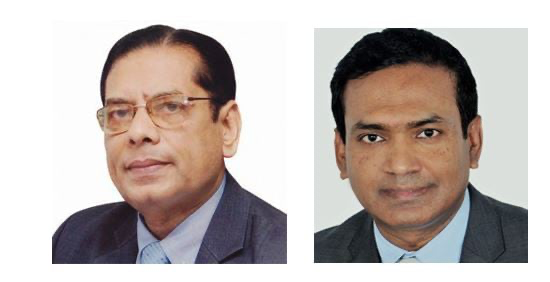Two leading economists of the country, while
shedding lights on the next budget for FY23, said controlling inflationary pressure is now the main challenge of the economy and the government should cite controlling inflation as the main policy in the next budget.
While talking to BSS, distinguished fellow of the Centre for Policy Dialogue (CPD) Professor Dr Mustafizur Rahman and the Research Director of the Policy Research Institute (PRI) Dr MA Razzaque also focused on keeping the inflationary pressure within the tolerance level of common people.
Finance Minister AHM Mustafa Kamal is set to place the next national budget for FY23 at Jatiya Sangsad on June 9.
Prof Mustafizur said people of the country are now under inflationary pressure and it should be kept at a tolerant level as much as possible to
give the commoners relief.
"For this, expenditures in the social safety nets should be increased side by side the poor section of people should get protection.
The government is providing poor people rice with Taka 10 per kilogram (KG) alongside cash
support. Under the circumstances, such kind of food support and cash support should be increased more," he added.
To expand the coverage of the social safety net programmes, the pressure on subsidies will increase, he said, adding: "Since, the common people are now under inflationary pressure, allocations against subsidies should be increased. In doing this, the government should accept the higher budget deficits."
Hailing the government's move to reduce tax and VAT on import of essential items alongside discouraging import of luxurious items to control inflation, the eminent economist noted that the central bank should continue its efforts
to keep the market of foreign currency stable.
"The current level of foreign currency reserve in no way creates any apprehension. So, the selling of US dollars should continue as per the demand so that there is no crisis," he said terming the devaluation of Taka against
US dollar as a timely move.
Considering the current inflationary pressure on common people mostly due to the global economic situation, Dr Mustafizur proposed for raising the ceiling of the individual tax payers as the tax free income ceiling was raised by
Taka 50,000 in the last fiscal year to Taka three lakh.
He said the people having annual income between Taka three lakh to Taka four lakh now have to tax at five percent and this tax ceiling should be raised to Taka six lakh to reduce their pressure.
The CPD distinguished fellow also proposed for increasing the institutional capacity of the National Board of Revenue (NBR) as well as strengthening its efforts to check tax evasion and infusing dynamism into the pricing sale
system.
Considering the present circumstances, the renowned economist suggested for paying more attention to the revenue budget instead of the development budget as expenditure in the import-based projects should be checked.
The government is also moving to that direction, he added. He said the government should not undertake any fresh import-based project
which will help minimizing pressure on the foreign currency reserves.
In order to deal properly with the challenges of LDC graduation, Dr Mustafizur said that the next budget should focus on the initiatives to
enhance the skills of the exporters to make them more competitive.
He also proposed for giving highest allocation in the education and health sectors in the next budget side by side enhancing budget implementation capacity of the government.
PRI Research Director and former head of International Trade Policy at the Commonwealth Secretariat in London Dr MA Razzaque said that the main focus of the next budget should be to control inflation and ensuring food security.
He said the whole of the world is now under immense inflationary pressure and it is also being evident here in Bangladesh. "So, the issue of controlling inflation should definitely get the high priority alongside ensuring food security."
Mentioning that the food security might come under threat in the next year, Razzaque said it should be monitored that how the low-income group people are being affected by inflation.
"If food can be reached to poor people with ease and comfort, then food security will be at least ensured. Under the present circumstances, ensuring food security will also be one of the main tasks," he added.
He said the government has already allocated Taka 3,000 crore for providing 30-Kg rice to each of the 62 lakh families for five months.
Dr Razzaque suggested for raising the budgetary allocation in this regard to Taka 10,000 crore through which it would be possible to render such support to some two crore families. Such budgetary allocation will be under one percent of the overall budgetary allocation and such initiative should be given higher priority, he added.
The renowned economists also proposed for continuing with the agri subsidy alongside controlling inflation and ensuring food security. He also suggested the government to raise the interest rate to some extent to minimize the
inflationary pressure.
The Research Director of PRI opined that considering the current situation, the government should go for devaluating Taka against the US dollar to lessen pressure on the foreign currency reserve alongside controlling imports.
Besides, the government could bargain more with the development partners to avail soft term loans.
Mentioning that the allocations against the education and health sectors are always inadequate like in the past, he said quality allocations and expenditures should be increased in these two sectors.
Turning to the issue of implementing development budget, Dr Razzaque said
that prior to the Covid-19 pandemic period, the government could utilize more than 90 percent of the ADP, which came down around 80 percent during the pandemic situation over the last two years.
"So, proper focus should be given on implementation of budget, which should
also be qualitative," he added.
The economist noted that the current debt to GDP ratio of the country is now 21 percent which is in a tolerable level and there is nothing to worry about it.
He, however, cited that the government is borrowing more from the domestic sources with around 11 percent of the overall budgetary allocations being kept for repaying the loans.
In this regard, Dr Razzaque suggested for taking less loans from the domestic sources side by side having new initiatives in the next budget for boosting export competitiveness.








-20260223062301.jpg)




-20260226080139.webp)





-20260225072312.webp)









-20260219054530.webp)
-20260224075258.webp)




-20260221022827.webp)